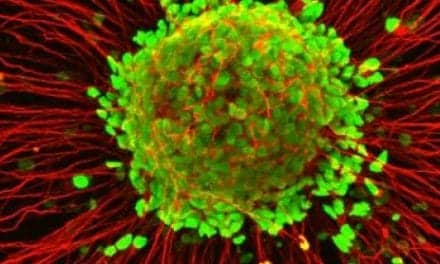Exercise slows the progression of Parkinson’s disease by halting the accumulation of the neuronal protein alpha-synuclein in brain cells, according to researchers from the University of Colorado Anschutz Medical Campus.
The study, published in the journal PLOS ONE, was conducted by Wenbo Zhou, PhD, research associate professor of medicine and Curt Freed, MD, professor of medicine and division head of the Division of Clinical Pharmacology and Toxicology at the CU School of Medicine.
The researchers suggest, according to a media release from University of Colorado Anschutz Medical Campus, that clumps of alpha-synuclein are believed to play a central role in the brain cell death associated with Parkinson’s disease. The mice in the study, like humans, started to get Parkinson’s symptoms in mid-life. At 12 months of age, running wheels were put in their cages.
“After three months,” Zhou says, “the running animals showed much better movement and cognitive function compared to control transgenic animals which had locked running wheels.”
In the running mice, exercise increased brain and muscle expression of a key protective gene called DJ-1. Those rare humans born with a mutation in their DJ-1 gene are guaranteed to get severe Parkinson’s at a relatively young age.
In the study, the duo tested mice that were missing the DJ-1 gene and discovered that their ability to run had severely declined, suggesting that the DJ-1 protein is required for normal movement.
“Our results indicate that exercise may slow the progression of Parkinson’s disease by turning on the protective gene DJ-1 and thereby preventing abnormal protein accumulation in the brain,” Freed suggests in the release.
The animal experiments could have implications in humans, they say.
“Our experiments show that exercise can get to the heart of the problem in Parkinson’s disease,” Freed states. “People with Parkinson’s who exercise are likely able to keep their brain cells from dying.”
[Source(s): University of Colorado Anschutz Medical Campus, EurekAlert]





